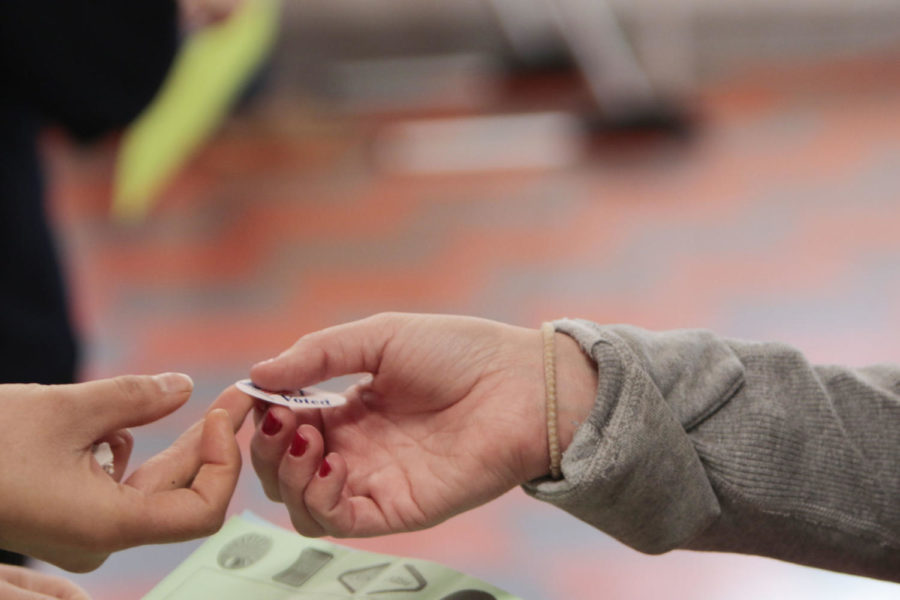UK students voting in presidential election
A voter takes an “I Voted” sticker from a precinct volunteer at the Carver Center in Lexington, Ky., on Tuesday, November 8, 2016. Polls are open in Fayette County until 6 p.m. Photo by Joshua Qualls | Staff
November 8, 2016
As the 2016 presidential election comes to a conclusive end, we find voters glued to the pending results. This has been by far one of the most covered and talked about elections in history. It’s been all over the news and social media ever since Donald J. Trump announced his candidacy.
This is the first election for many UK students and college students around the country and many of them are already fed up with our candidates. In fact, according to Public Policy Polling, over 40 percent of voters ages 18-29 show dissatisfaction with either candidate and according to the Colorado Secretary of State’s Office, 48 percent of millennials are unaffiliated with any political party.
This seems to be a common stance here at UK as well. “Really, you have a choice between a candidate who has probably broken major federal regulations and one who is just a bad person,” UK political science major Trevor Kennedy said. Dietetics major Mallory Christian said she “wasn’t very excited with the options” for president.
The extreme dissatisfaction of these candidates definitely contributed to the abnormally large world wide conversation about this election.
Related: General election news, result updates
It is also been widely talked about that third party candidates are receiving a large percentage of the millennial vote. According to polls by Quinnipiac University, 60 percent of millennials have considered voting third party. “Voting third party is hard….you know your vote means nothing and it’s more of symbolic gesture more than anything else,” Kennedy said.
With this surge of voter dissatisfaction comes a huge wave of people who feel discouraged from voting. Among all demographics, millennials are the least likely to vote, even though they have almost surpassed the baby boomers as the largest living generation. So, when one of our largest demographics are least likely to vote, we are missing a major voice in our society, especially since they are the future of the country.
Despite this unwillingness to vote, most UK students interviewed at an on campus polling area reported that it was their civic duty to vote, when asked what compelled them to come out and vote.
Many people also feel disappointed in what this election has brought. “I feel like it’s one that’s dividing people more than bringing people together, which is kind of sad,” UK family sciences major Denisha Burton said.






























































































































































